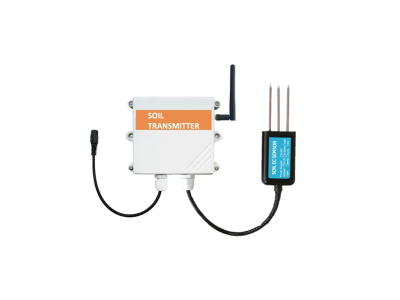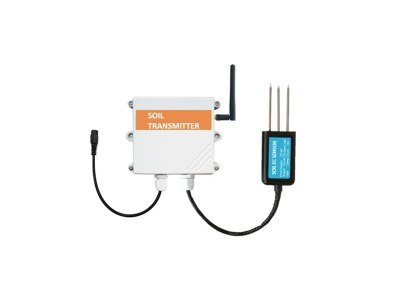Smart farming, also known as precision agriculture, is a farming management concept that uses modern technology to increase the quantity and quality of agricultural products. One of the key technologies used in smart farming is soil sensors, which help farmers optimize irrigation and fertilization for improved crop yield. In this article, we will explore the benefits of using soil sensors in smart farming and how they can help farmers make better decisions to increase their crop yield.

Benefits of Using Soil Sensors in Smart Farming
Soil sensors are an essential tool for smart farming as they provide real-time data on soil moisture, temperature, and nutrient levels. This information is crucial for farmers to make informed decisions about irrigation and fertilization, which are key factors in determining crop yield. By using soil sensors, farmers can monitor the conditions of their soil and adjust their irrigation and fertilization practices accordingly, leading to improved crop yield and reduced resource wastage.
Optimizing Irrigation with Soil Sensors
Irrigation is a critical aspect of farming, as it directly impacts the growth and development of crops. With soil sensors, farmers can accurately monitor the moisture levels in their soil and determine when and how much water to apply to their crops. This helps prevent over-irrigation, which can lead to waterlogging and nutrient leaching, as well as under-irrigation, which can result in stunted growth and reduced crop yield. By optimizing irrigation with soil sensors, farmers can ensure that their crops receive the right amount of water at the right time, leading to improved crop yield and water efficiency.Fertilization Management with Soil Sensors
Fertilization is another crucial aspect of farming, as it provides essential nutrients to the soil to support the growth of crops. Soil sensors can help farmers monitor the nutrient levels in their soil and determine the appropriate amount and type of fertilizer to apply to their crops. This allows farmers to avoid over-fertilization, which can lead to nutrient runoff and environmental pollution, as well as under-fertilization, which can result in nutrient deficiencies and reduced crop yield. By managing fertilization with soil sensors, farmers can ensure that their crops receive the right nutrients at the right time, leading to improved crop yield and nutrient efficiency.
Case Study: Using Soil Sensors to Improve Crop Yield
To illustrate the benefits of using soil sensors in smart farming, let's consider a case study of a farmer who implemented soil sensors to optimize irrigation and fertilization for improved crop yield. The farmer, John, grows corn on his farm and was struggling to achieve consistent yields due to unpredictable weather patterns and varying soil conditions. He decided to invest in soil sensors to monitor the moisture and nutrient levels in his soil and make data-driven decisions about irrigation and fertilization.
By using soil sensors, John was able to accurately monitor the moisture levels in his soil and determine when and how much water to apply to his crops. This helped him avoid over-irrigation during wet periods and under-irrigation during dry periods, leading to improved water efficiency and crop yield. Additionally, John was able to monitor the nutrient levels in his soil and adjust his fertilization practices to ensure that his crops received the right nutrients at the right time. This led to improved nutrient efficiency and crop yield, as well as reduced environmental impact from nutrient runoff.
Overall, the implementation of soil sensors allowed John to make better decisions about irrigation and fertilization, leading to a 20% increase in his corn yield and a 30% reduction in water and fertilizer usage. This not only improved his farm's profitability but also contributed to sustainable farming practices and environmental stewardship.
Conclusion
In conclusion, soil sensors are a valuable tool for smart farming as they provide real-time data on soil moisture, temperature, and nutrient levels. By using soil sensors, farmers can optimize their irrigation and fertilization practices to improve crop yield and reduce resource wastage. The case study of John's farm illustrates the benefits of using soil sensors in smart farming and how they can help farmers make better decisions to increase their crop yield. As smart farming continues to evolve, soil sensors will play an increasingly important role in helping farmers achieve sustainable and profitable agricultural production.






